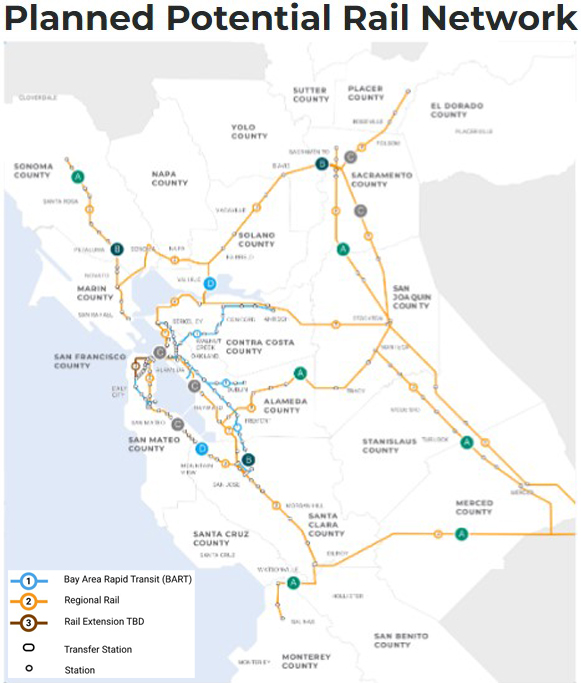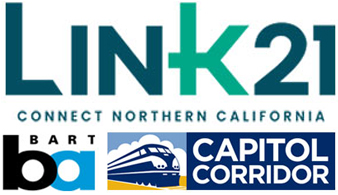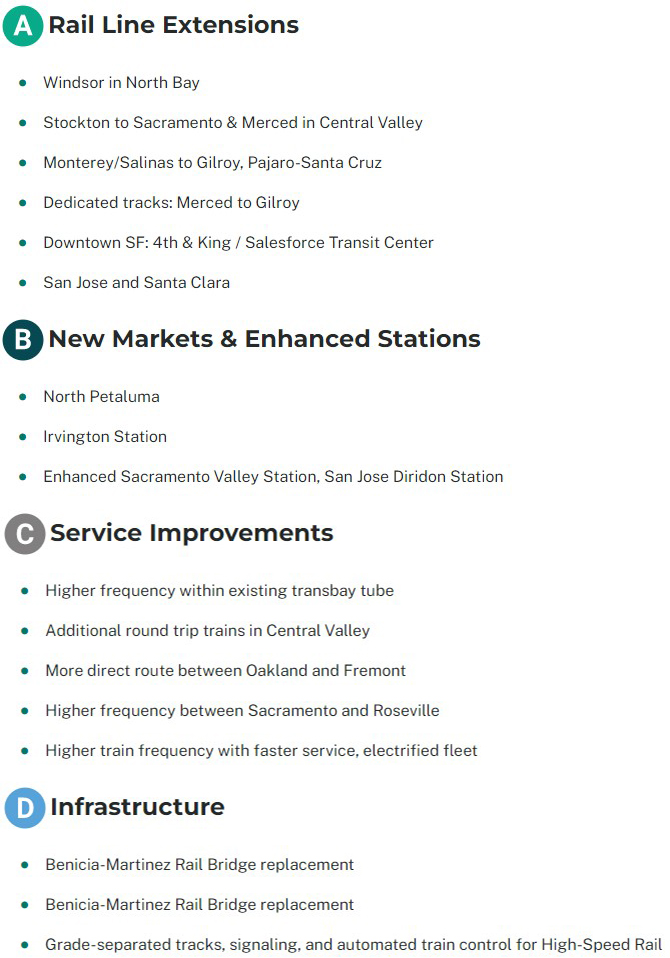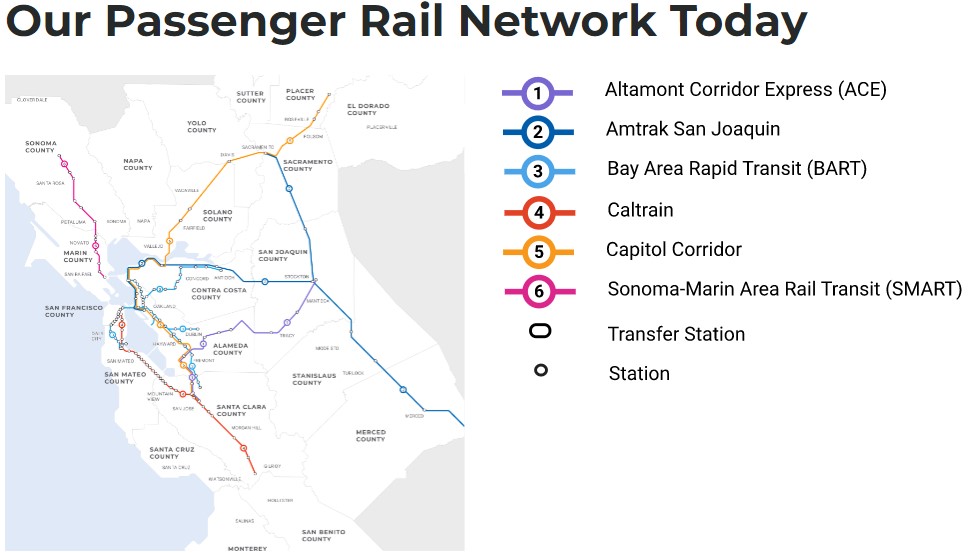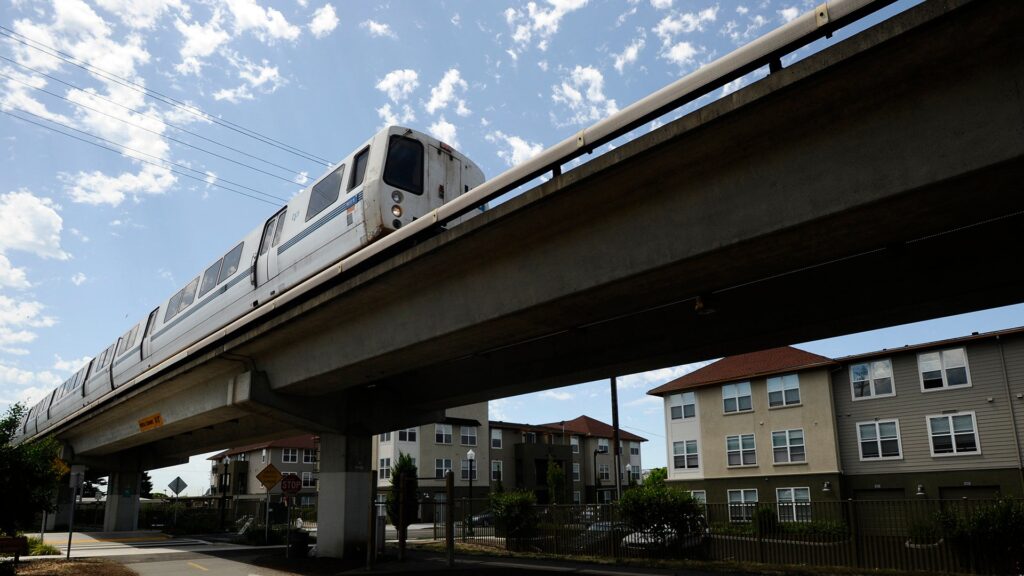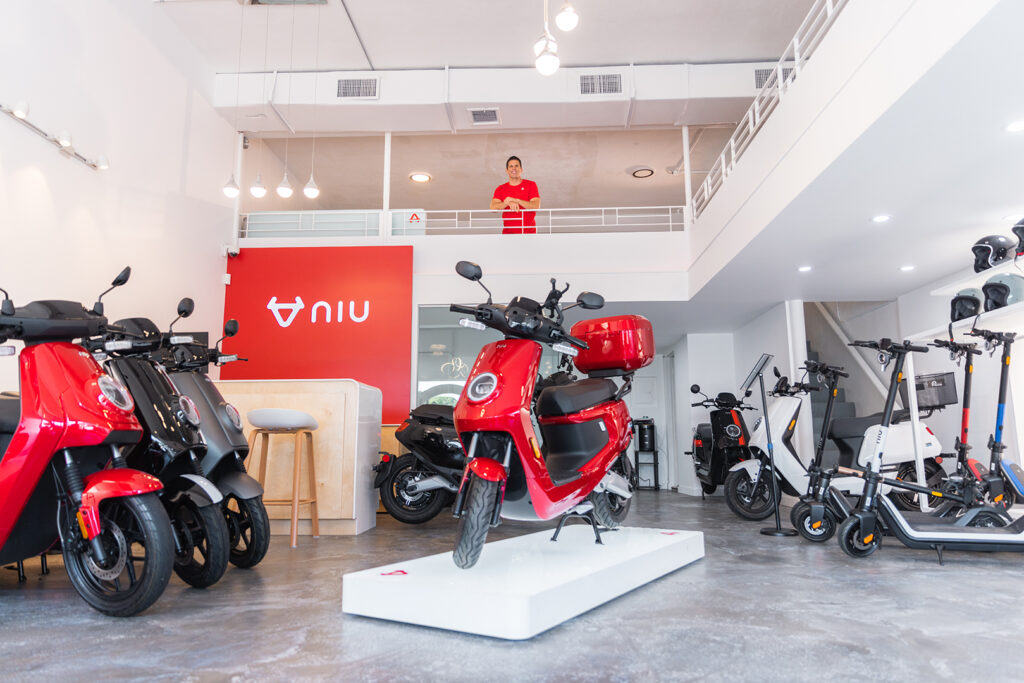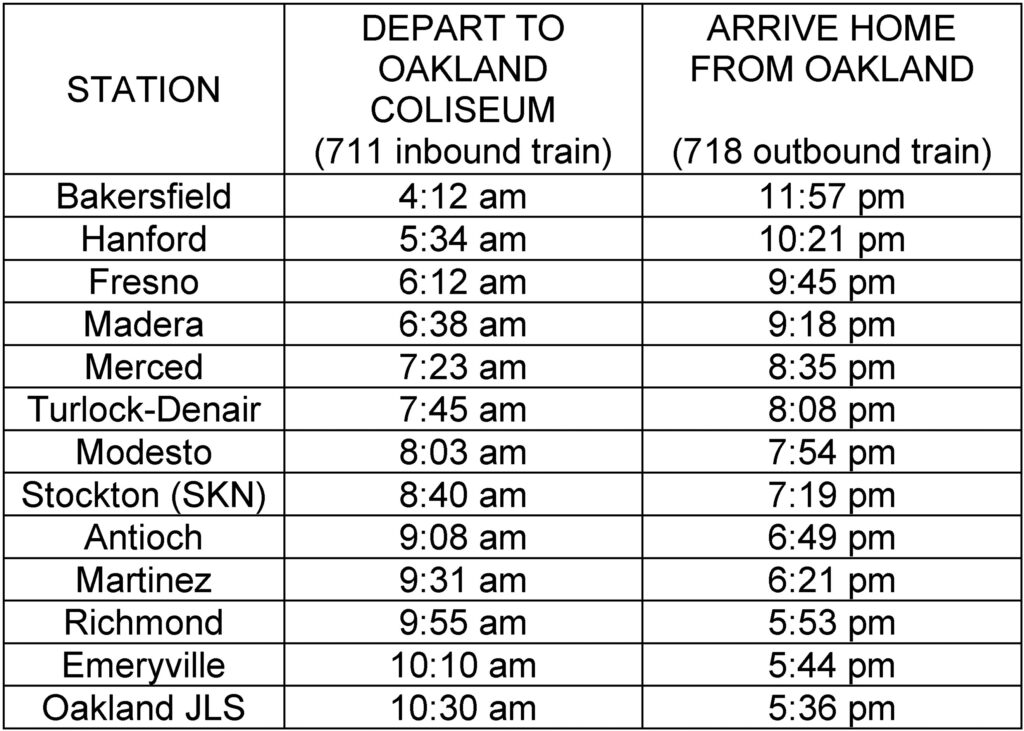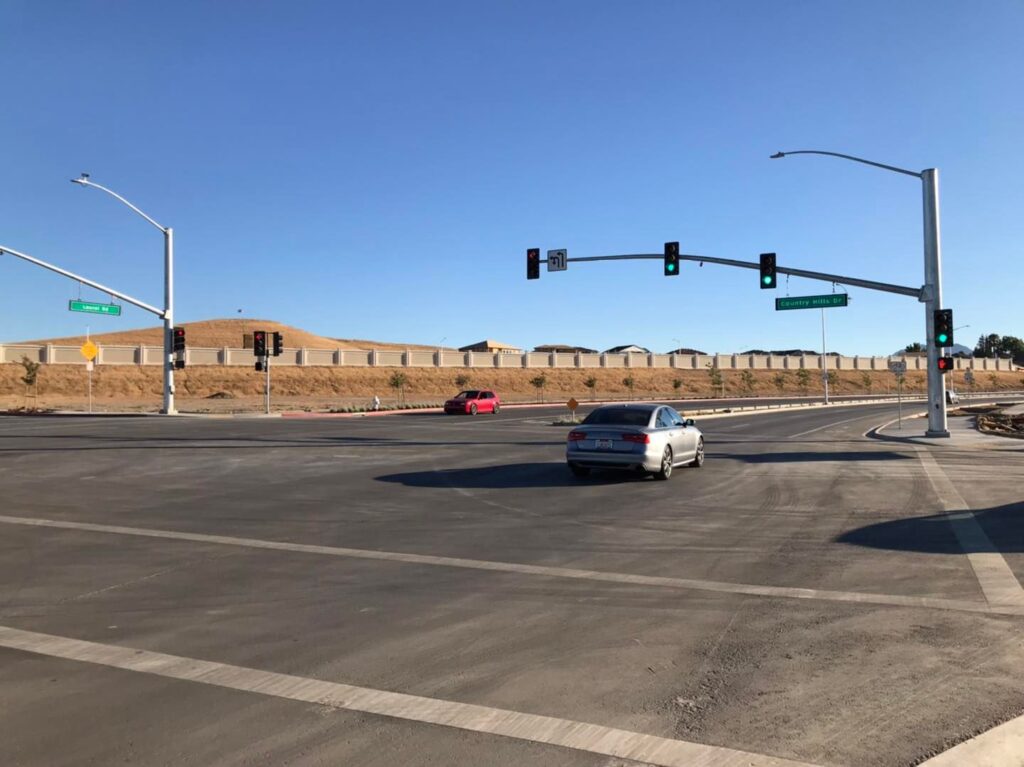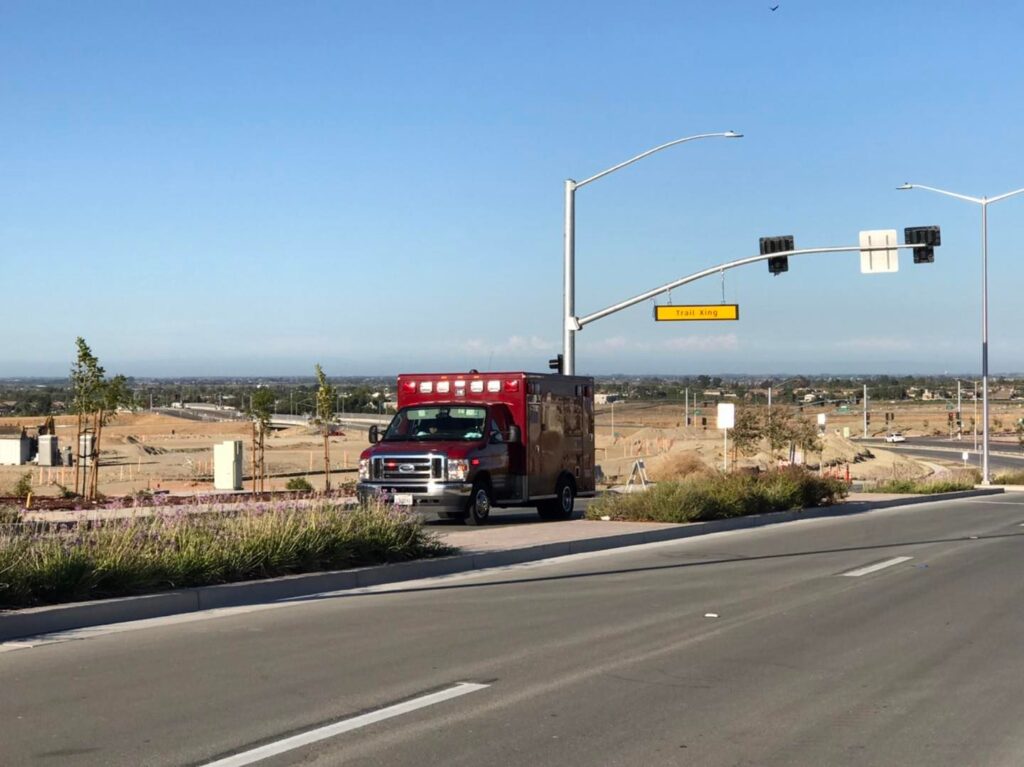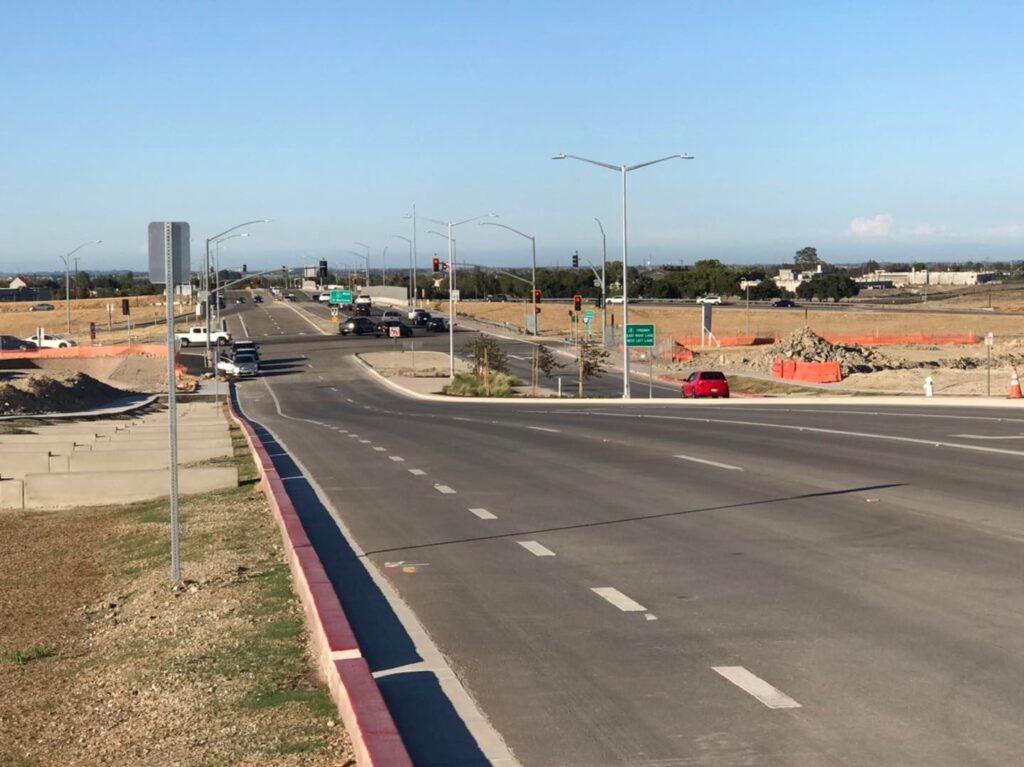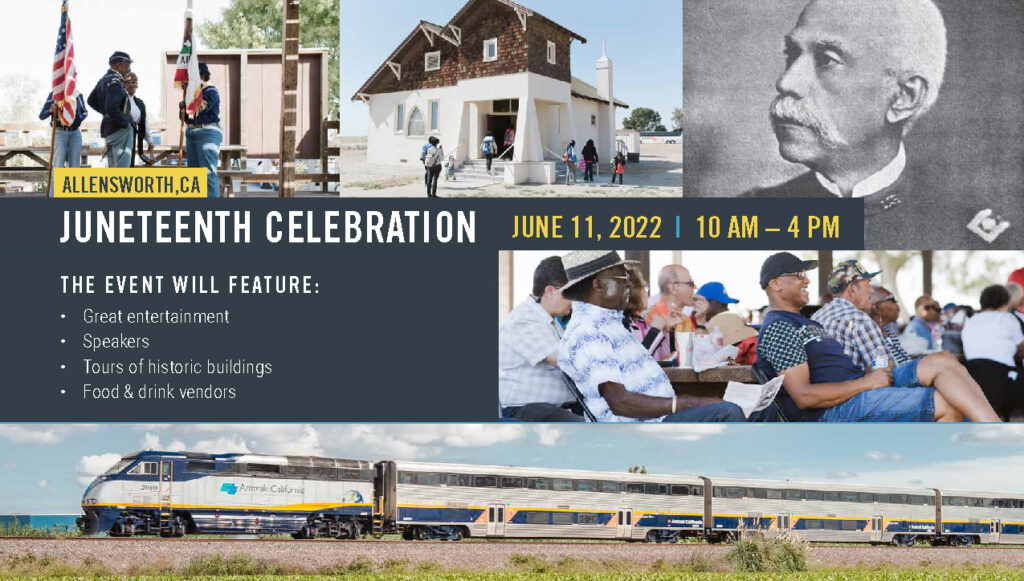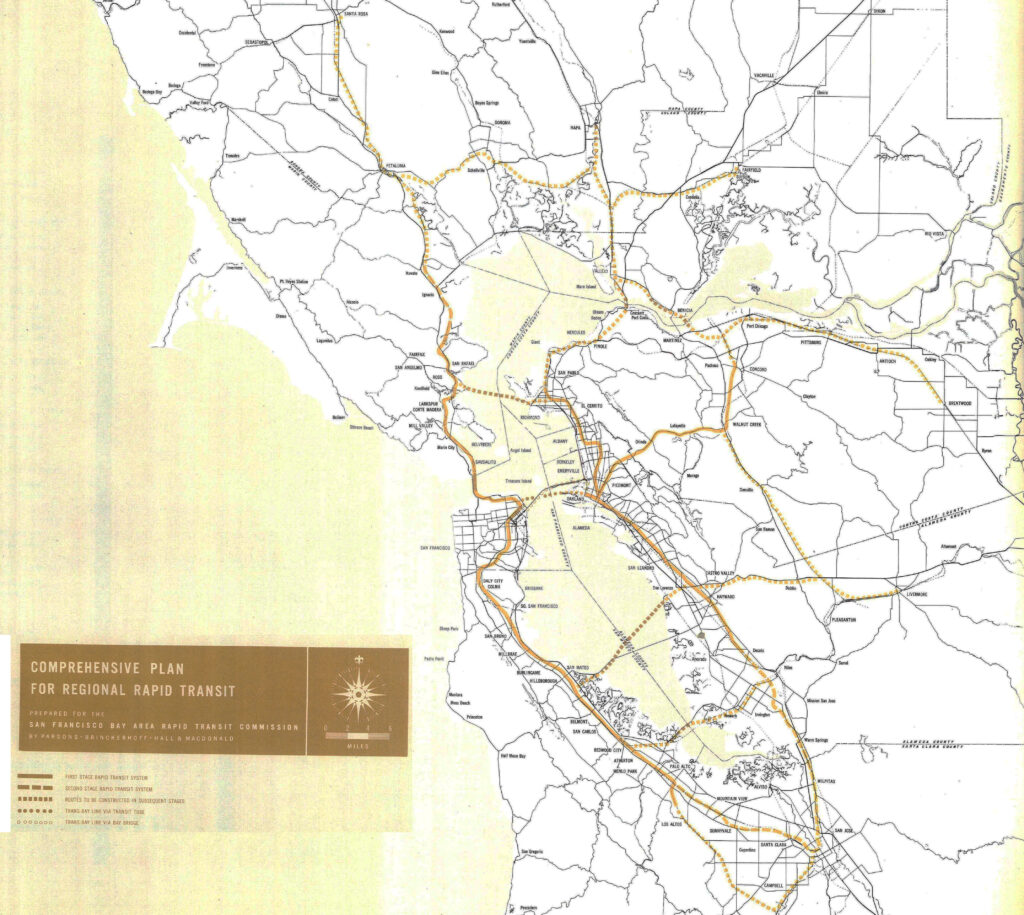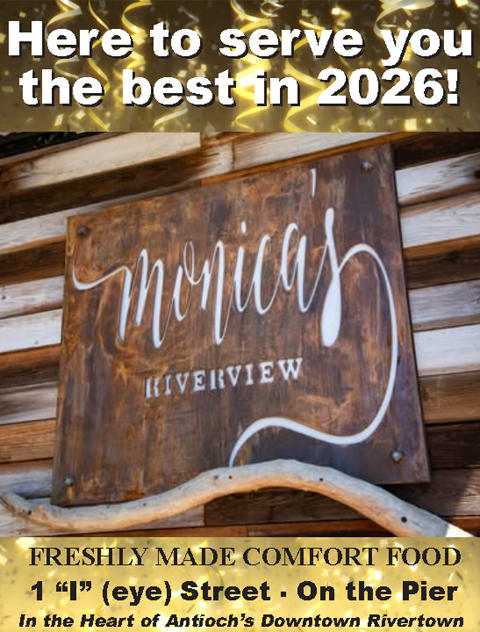After 32 years Tri Delta Transit has new CEO, Rashidi Barnes, Jeanne Krieg to retire in February
Saturday, October 22nd, 2022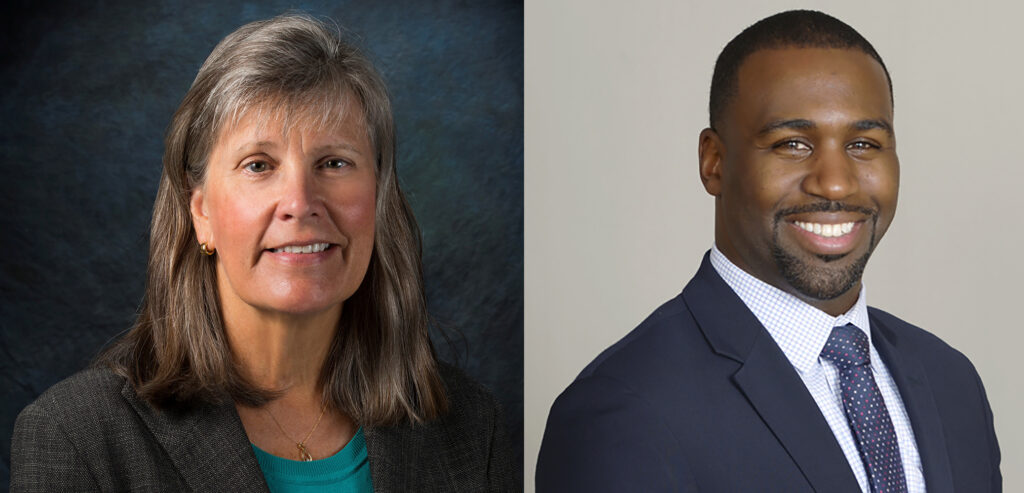
Former Tri Delta Transit CEO Jeanne Krieg and new CEO Rashidi Barnes. Photos: Tri Delta Transit
By Leeann Loroño, Manager of Customer Service and Marketing, Tri Delta Transit
(Note: Apologies for the delay in posting this information. The Herald publisher was sick during the week this press release was issued)
After an extensive nationwide search, the Board of Directors of the Eastern Contra Costa Transit Authority, aka Tri Delta Transit, unanimously selected Rashidi Barnes as Tri Delta Transit’s new CEO. He assumed the role of Chief Executive Officer on September 7, 2022, replacing long-time CEO Jeanne Krieg who is retiring in February after 32 years at the agency.
Barnes started his transit career twenty years ago as the Western Sales Manager for Transit Marketing Group, a leader in marketing and sales for transit product manufacturers. From there he became the Director of Procurement for Foothill Transit where he was responsible for insuring contract compliance and procurement of materials/supplies and professional, architectural and engineering services. He also served as Foothill Transit’s Disadvantaged Enterprise Liaison Officer during his tenure. His next five and a half years was spent with Central Contra Costa Transit Authority (County Connection) where he served as Senior Manager of Transportation, Senior Manager of Innovation and Shared Mobility, and then Director of Innovation and Shared Mobility. Projects that he helped to deliver included the initial Clipper System implementation for CCCTA, introducing on-demand transportation service, shepherding bus on shoulder legislation and congestion mitigation options, working with the regions local utility provider to help launch the agency’s first electric bus. During his other roles at CCCTA, Mr. Barnes oversaw the daily operations of 160+ bus operators, 12 supervisors and 1 transit manager. Daily as an operations team, their focus was on providing efficient service. This was accomplished through a dedication to strong customer service, innovative approaches in planning, traffic mitigation, and performance management of employees.
Most recently, Mr. Barnes has been working for First Transit as the Director of Mobility as a Service, a national position where he worked with various transit agencies, TNC’s, payment solution companies and micro mobility providers to deliver innovative mobility solutions. Through the introduction of MaaS mobile applications, data analytics and focus on improving the customers journeys Mr. Barnes believes that transit agencies will be able re-solidify its place in the daily transportation decisions that people make.
Mr. Barnes brings a variety of experience in roles that are part of Tri Delta Transit’s service. In addition, he brings proven leadership, innovative thought, decision making skills, contract administration, as well as, in-depth industry knowledge. In 2015, Mr. Barnes was listed by Mass Transit Magazine as one of the Top 40 Under 40 to watch and follow.
“We are greatly saddened by the retirement of Jeanne Krieg, who has been a strong leader for the last 32 years,” Board Chair Anissa Williams stated. “We are extremely fortunate to be bringing Rashidi Barnes onboard, who will no doubt continue Jeanne Krieg’s strong leadership and direction, while forging his own legacy.”
Krieg assumed the title of CEO Transitional Officer, serving in the position until she retires officially in February after a long and distinguished career.
Krieg Honored on Industry’s Wall of Excellence
In April, this year Krieg was honored by the California Association for Coordinated Transportation (CalACT) in Newport Beach at the CalACT spring conference. She was awarded a spot on the CalACT Wall of Excellence which recognizes individuals who have had a long and distinguished career in public transportation and have made outstanding contributions to CalACT and the transportation industry.
“Under the leadership of CEO Jeanne Krieg, Tri Delta Transit is a very forward thinking and innovative agency,” said then Board Chair Ken Gray. “Tri Delta Transit has been first adaptors of electric and hydrogen technology, use of various app technology, and in the forefront of employee practices to retain employees and create an optimal work environment.”
CalACT is a statewide, non-profit organization that represents the interests of small, rural and specialized transportation providers. CalACT, who have been in existence since 1984, promotes: striving for professional excellence in the field of transportation; that mobility is essential to the freedom and quality of life for everyone; and that agencies can create solutions by working together. CalACT acts as advocates for the industry, provides resources, sponsors conferences that promote idea and knowledge sharing, and implements programs such as bus procurement cooperative.
“I was surprised and humbled by this recognition from my industry,” Krieg said. “All of the employees and board members at Tri Delta Transit are a part of this award: their support, dedication, and hard work are what makes our agency successful.”
ABOUT TRI DELTA TRANSIT
Tri Delta Transit provides over two million trips each year to a population of over 315,000 residents in the 225 square miles of Eastern Contra Costa County. They currently operate 15 local bus routes Monday – Friday, five local bus routes on weekends, door-to-door bus service for senior citizens and people with disabilities, and on-demand rideshare services. To learn more, visit TriDeltaTransit.com.











